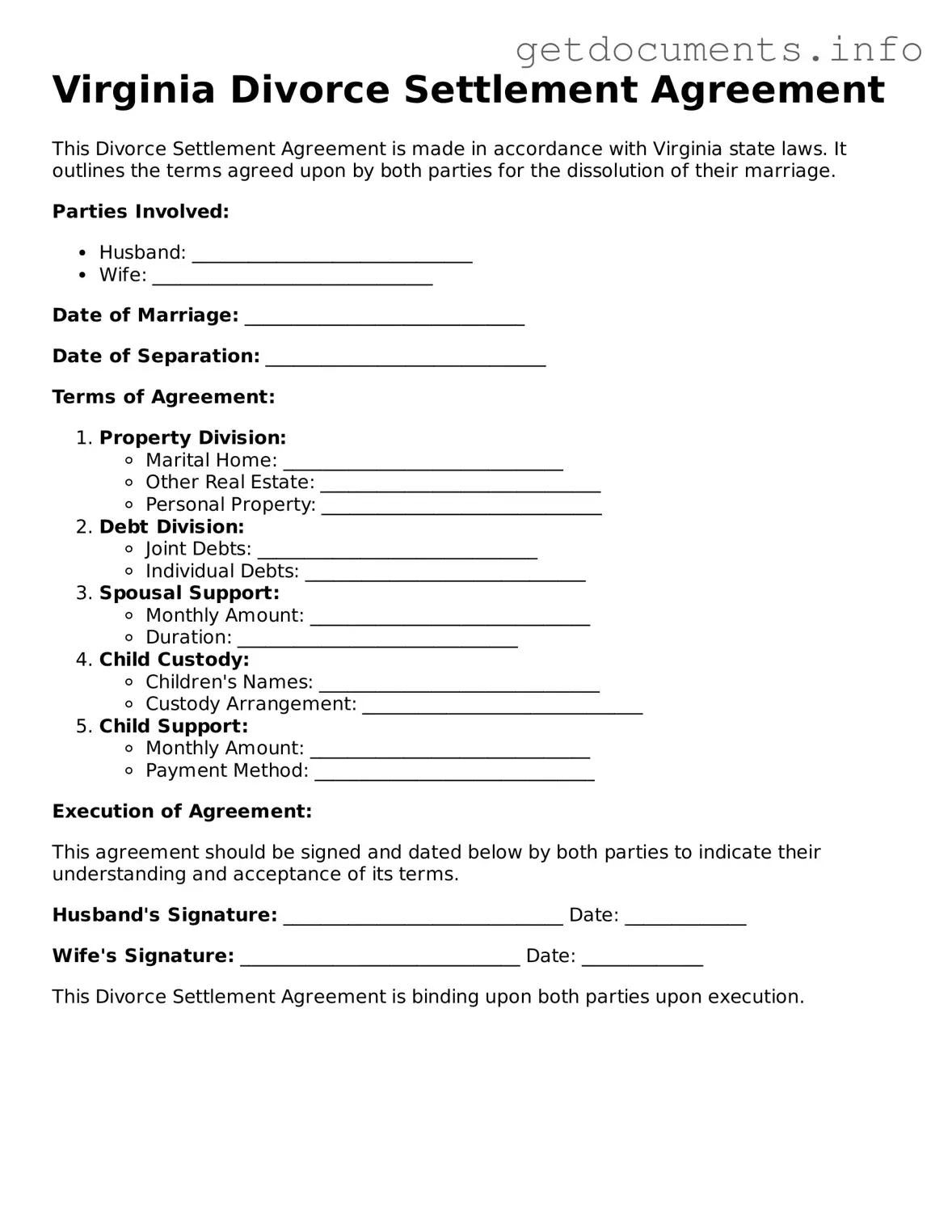Free Divorce Settlement Agreement Template for Virginia
The Virginia Divorce Settlement Agreement form is a legal document that outlines the terms of a divorce settlement between two parties. This form covers important aspects such as property division, child custody, and spousal support. For those navigating the divorce process, completing this form is a crucial step toward finalizing the agreement.
Ready to take the next step? Fill out the form by clicking the button below.
Access Divorce Settlement Agreement Editor

Free Divorce Settlement Agreement Template for Virginia
Access Divorce Settlement Agreement Editor
Got places to be? Complete the form fast
Fill out Divorce Settlement Agreement online and avoid printing or scanning.
Access Divorce Settlement Agreement Editor
or
⇩ PDF File
